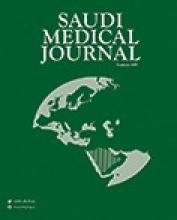19 March 2019 - The World Health Organization’s new advisory committee on developing global standards for governance and oversight of human genome editing has agreed to work towards a strong international governance framework in this area.
“Gene editing holds incredible promise for health, but it also poses some risks, both ethically and medically. This committee is a perfect example of WHO’s leadership, by bringing together some of the world’s leading experts to provide guidance on this complex issue. I am grateful to each member of the Expert Advisory Committee for their time and expertise.” says Dr Tedros Adhanom Ghebreyesus, WHO Director-General.
Over the past two days, the committee of experts reviewed the current state of science and technology. They also agreed core principles of transparency, inclusivity and responsibility that underpin the Committee’s current recommendations. The committee agreed that it is irresponsible at this time for anyone to proceed with clinical applications of human germline genome editing.
The committee also agreed that a central registry on human genome editing research is needed in order to create an open and transparent database of ongoing work. The committee asked WHO to immediately begin working to establish such a registry.
The committee has invited all those conducting human genome editing research to open discussions with the committee to better understand the technical environment and current governance arrangements and help ensure their work meets current scientific and ethical best practice.
The committee will operate in an inclusive manner and has made a series of concrete proposals to increase WHO’s capacity to act as an information resource in this area.
“The committee will develop essential tools and guidance for all those working on this new technology to ensure maximum benefit and minimal risk to human health,” says Dr Soumya Swamanathan, WHO Chief Scientist.
Over the next two years, through a series of in-person meetings and online consultations, the committee will consult with a wide range of stakeholders and provide recommendations for a comprehensive governance framework that is scalable, sustainable and appropriate for use at the international, regional, national and local levels. The committee will solicit the views of multiple stakeholders including patient groups, civil society, ethicists and social scientists.
Available from: https://www.who.int/news-room/detail/19-03-2019-who-expert-panel-paves-way-for-strong-international-governance-on-human-genome-editing
- Copyright: © Saudi Medical Journal
This is an open-access article distributed under the terms of the Creative Commons Attribution-Noncommercial-Share Alike 3.0 Unported, which permits unrestricted use, distribution, and reproduction in any medium, provided the original work is properly cited.






